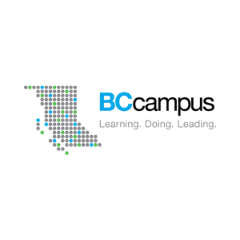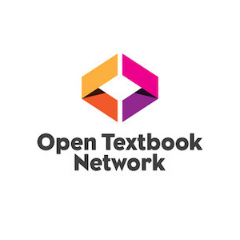About
#LPForum19
As the use of OERs continues to grow throughout the academy, this preconference will address the growing need for distinctive practices for developing, supporting, and hosting OERs as part of library publishing. The morning will consist of a hands-on textbook publishing workshop (planned in collaboration with the Open Textbook Network), and the afternoon will include panels and presentations (planned in collaboration with BCcampus).
Schedule
7:30 AM – 8:00 AM: Breakfast
8:00 AM – 11:30 AM: Open Textbook Publishing Workshop
11:30 AM – 1:00 PM: Lunch break (on your own)
1:00 – 5:00 PM: Practices and Possibilities (mini-conference)
Registration
**Registration for the preconference is now closed.**
Morning workshop: US$25 registration fee (limit 50 participants, includes breakfast and AM coffee/snack break)
Update, March 15: The morning textbook publishing workshop is full. To be added to the waitlist for this workshop, email contact@librarypublishing.org.
Afternoon mini-conference: US$10 registration fee (limit 100 participants, includes PM coffee/snack break)
Registration for the morning and afternoon sessions is separate; attendees can register for just one session or both. The registration deadline is April 19.
Program
Breakfast (7:30 AM – 8:00 AM)
Morning: Open Textbook Publishing Workshop (8:00 AM – 11:30 AM)
In this hands-on workshop, you will learn effective project management for supporting open textbook publishing. Working at tables with experienced open textbook project managers, attendees will develop strategies for setting expectations with authors, guiding textbook development, creating project timelines, and supporting editing, design and production based on local capacity. Prior to the workshop, some preliminary work will be required to establish a shared understanding of open textbooks.
Instructor: Karen Lauritsen, Open Textbook Network
Table facilitators: Karen Bjork, Portland State University; Michelle Brailey, University of Alberta; Corinne Guimont, Virginia Tech; Inba Kehoe, University of Victoria; Mark Konecny, University of Cincinnati; Amanda Larson, Penn State University; Carla Myers, Miami University; Anita Walz, Virginia Tech
Lunch Break (11:30 AM – 1:00 PM)
Afternoon: Practices and Possibilities (1:00 PM – 5:00 PM)
In this series of presentations, you will engage with OER publishing from a programmatic and community perspective. Presenters will share their experiences developing and maintaining OER publishing programs, identify opportunities to collaborate and learn from OER stakeholders, and recommend future directions for the OER publishing community. Through activities and discussions, attendees will leave with practical next steps for their own programs, whether those programs are well-established, brand new, or merely in the conceptual stage.
Opening Remarks (1:00 PM – 1:15 PM)
Full Session (1:15 PM – 2:30 PM)
The Library as OER Publisher: Now What, Pandora?  [video1][video2]
[video1][video2]
Karen Meijer-Kline, Kwantlen Polytechnic University; Caroline Daniels, Kwantlen Polytechnic University; Stephanie Savage, University of British Columbia; Leonora Crema, University of British Columbia; Lucas Wright, University of British Columbia
Today libraries are seeking new creative partnerships with faculty in open textbook and OER creation. This workshop will review two case studies at libraries that do not yet have established open textbook publishing programs.
At Kwantlen Polytechnic University, the Library started small with an internal open education grant to test the concept of ‘Library as Open Publisher’. Based on that small success, they followed by extending the service through an expanded granting opportunity with the library taking on publishing projects in larger and various capacities. At University of British Columbia, the Library used faculty subgrants to explore what open publishing partnerships are possible, followed by program assessment with both faculty and students. Both libraries based their projects on the BCcampus Pressbooks platform, and found that services, once offered, evolved in unexpected ways. Just when we think we’ve sussed it, has the open textbook morphed into new entities not yet imagined?
In this changing landscape, what are we seeing and how do we recommend starting up these services? What will be our capacity to sustain them? What strategies accelerate or hinder progress? Rounding off the session, a learning technologist will shed light on what else might be in Pandora’s box that we will need to consider in a library-led publishing program. What new tools will instructors pull out of the box in 2020?
If your library had no new resources, could you pull off an open publishing program? What 15% of resources that you currently have at your disposal could be directed towards it? (Participants will be invited to engage in a “15% Solutions” Liberating Structure activity.)
Whether your library’s open textbook / OER program is longstanding or just getting started, we promise a lively and engaging discussion that will leave you with many practical tips and a few puzzles unsolved.
Break (2:30 PM – 3:00 PM)
Presentations (3:00 PM – 4:45 PM)
If You Build It, Will They Come? Faculty Preferences for Textbook Publishing Programs  [video]
[video]
Jessica Kirschner, Virginia Commonwealth University
What do faculty look for when publishing textbooks? While marketing the launch of a new affordable textbook publishing program at Texas Tech University Libraries, most faculty we spoke to expressed interest. But this engagement did not translate to submissions for our initial call for proposals. Since the outline of services and the values that drive our program—affordability, locality, and customizability—did not attract a pilot group, we decided to survey our faculty about which factors they value in a textbook publishing program. With these results in hand, we could shape a publishing program which was guided by these drivers but also had features which would enable it to be competitive with other textbook publishers for our faculty’s patronage.
This presentation will review the results of our survey: what features do faculty prefer when searching for a publisher for their textbook? What features would they value in a textbook publishing program being created in the library? Factors queried about include print vs digital, author retaining copyright, peer review, speed of publication, customizability, and availability of supplementary materials, as well as the value of locality and publisher prestige.
Advancing Open and Affordability: University Presses, Libraries, and Textbooks
Annie Johnson, Temple University
The textbook landscape is changing. Since 1978, the average cost of undergraduate textbooks has increased 810% or 3x the inflation rate. In response to this development, many colleges and universities have begun to make textbook affordability a priority on their campuses, encouraging faculty to use no or low-cost materials instead of expensive commercial textbooks.
University presses are part of the solution when it comes to the challenge of high textbook costs. Presses that publish textbooks generally make it a point to create affordable versions for students. However, while university presses are increasingly experimenting with open access book publishing, involvement in publishing open textbooks has been limited. Why is this? Could university presses and libraries work together to publish high-quality open textbooks? This presentation will report on a survey of university presses about attitudes towards and involvement with the publication of open textbooks. It will explore how open textbooks published by presses are similar to and different from open textbooks published by libraries. Finally, the presenter will give examples of press/library partnerships around the publication of open textbooks and offer ideas for how more of these collaborations might work in the future.
Open Content Deserves Open Platforms: Principles & Practices for a Publicly-Owned Publishing Infrastructure  [video] [slides]
[video] [slides]
Steel Wagstaff, Educational Client Manager, Pressbooks; Allison Brown, Digital Publishing Services Manager, SUNY Geneseo; Lillian Hogendoorn, Program Coordinator, eCampusOntario; Amanda Wentworth, OER Publishing Coordinator, SUNY Geneseo
Many publishers are pivoting from selling expensive textbooks to selling expensive courseware (often wrapped around OER content). Changes in their product offerings are often accompanied by marketing campaigns touting personalized learning, inclusive access, and all-in-one subscription models. While library publishers have made important strides in displacing proprietary content with openly-licensed alternatives, fewer inroads have been made in regard to courseware and the platforms used to create it.
In this 60-minute session, we will present our vision of a publicly-owned, open-source publishing infrastructure capable of producing media-rich, interactive, openly licensed books and other educational material. We will present seven guiding principles for publishing platforms that we want to build and use:
- Publicly owned: Is open-source & uses open-source components
- Plays well with others: Uses broadly-accepted standards
- Lets users come & go freely: Allows for easy import/export of content & data
- Can be adapted to local needs: Allows content to be cloned/remixed
- Helps learners accomplish their goals: Includes interactive components
- Is inclusive & participatory: Is accessible, easy to use, and includes web annotation
- Is demonstrably efficacious: Permits ethical, learner-centered analytics
Presenters will describe recent investment by SUNY system and eCampusOntario to build a more robust open publishing infrastructure (using Pressbooks and other tools) and how this work aligns with the mission of their library publishing programs. We will explore questions of responsibility (Who funds this work? Who should govern these platforms?), maintenance (Who takes care of the system? Who takes care of the content?), and collaboration (How do diverse institutions work together in pursuit of common goals? How do we know that what build will meet the needs of communities outside our own?).
Closing (4:45 PM)
Planning Committee
Sonya Betz, University of Alberta (chair)
Lauri Aesoph, BCcampus
Jonathan Bull, Valparaiso University
Amanda Coolidge, BCcampus
Karen Lauritsen, Open Textbook Network
Matt Ruen, Grand Valley State University
Melanie Schlosser, Library Publishing Coalition
Preconference Sponsors
Contact
Email contact@librarypublishing.org with questions.


